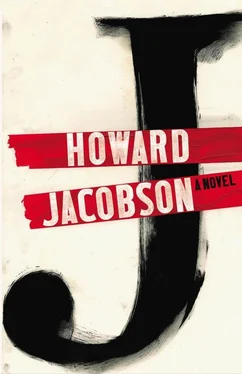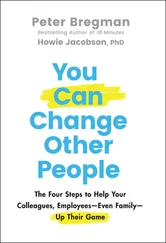‘One can do one’s job and not be officious,’ I answered him, officiously.
‘And one can do one’s job and not be efficient. He’s not right. You should know that. He’s not right and his place is not right. And all this pretending to have a girlfriend. If you ask me, his girlfriend is not right either.’
‘Not being right,’ I reminded him, ‘is not your province.’
‘I know that. Except that I have to clean up the consequences of couples being wrong. But if those whose province it is insist on keeping their eyes in their backsides. .’
‘We go at a different pace, that’s all. We have truth to sieve through. We can’t just go on hunches.’
‘Well, he’s yours again now,’ he said with displeasure, ‘whatever you go on.’
‘There’s just one more thing,’ I said. He turned his face from me. He didn’t care what other things there were. But I had to get an acknowledgement from him. ‘Whatever you saw in his cottage must remain between you and him,’ I said. ‘It’s not public information. And you have to stay away from him. They don’t want him frightened.’
‘What — afraid he’ll run away?’ He tried to find a laugh but failed.
‘He needs not to be startled,’ I said. ‘That’s all. They aren’t playing about with this one. They want him where they can keep an eye on him.’
‘So, it’s as I’ve been saying all along — he’s not right.’
What I said next I said only to appear I knew more than he did. ‘On the contrary — he might be only too right.’
But as soon as I said it I realised I knew more than I knew I knew.
FOUR. The Chimes at Midnight
i
HE SLEPT BADLY. Knowing someone had been lying on his bed — perhaps even in his bed — took from his already small capacity to rest.
But the real reason he slept badly was that Ailinn wasn’t beside him. How quickly he’d come to rely on her being there! How safe, without his realising it, she’d made him feel!
Safety, he thought, could creep up on you as exactly as fear could.
Women sometimes talked of resisting love because it weakened them. Had it weakened him, he wondered, by insinuating safety into his life and seducing him into taking his eye off danger?
He shouldn’t have asked her to move in with him in the first place, but nor should he have asked her to leave. He shouldn’t have been short with her. It wasn’t her fault that he’d deep-kissed Lowenna Morgenstern and brought Detective Inspector Gutkind into his cottage. Except that he knew Lowenna Morgenstern wasn’t to blame either. It was Gutkind who had straightened his rug, he had no doubt of that. It was Gutkind who’d let himself in — while he, Kevern, was away from home, telling strangers to fuck off and hearing voices in Cohentown — Gutkind who’d gone searching through his things. But he wasn’t searching for a blood-stained shirt. That, too, Kevern knew for sure. Gutkind didn’t take him for a murderer. So what did Gutkind take him for?
And never mind Gutkind, who was nobody, nothing, just an accident of history — what was there to unearth?
He lay on his Ailinnless bed looking up at the ceiling with its low, weevilled beams, and watched the question refuse to take definite form. Like one of those humming patterns in the wallpaper that disturb the nights of feverish children, it twisted and writhed, now coming away from the wallpaper altogether, coming at him, making him wonder if it was truly outside himself at all or merely mimicked in visual form the fragmented evasions of his mind. There were some questions you couldn’t ask, even of yourself. There were some questions you couldn’t begin to mould from the black chaos of ignorance, for fear of what definition would bring. Because — because once you’d framed the question you’d given a half-shape to the answer. Better it stay amorphous on the ceiling, as much a musical sound as a drawn or sculpted form. As much a lost note from an electronic sonata, a jammed keyboard, as a moving blob of paint.
But tonight, without Ailinn to soothe him into forgetfulness, he couldn’t leave it alone. Why, he compelled himself to ask, why this apprehension? Why the years of compulsive letter-box peering? Why the lock-checking?
He knew the psychology. It was displacement, all of it. It stood for something else. But wasn’t it also simply a way of practising? A way of accustoming himself, at the very least, to what was not and never would be under his control?
Was that then all that he’d been waiting for — proof positive that he couldn’t affect, for well or ill, his own outcome?
But did even that explain the persistence of the apprehension? Never mind whether there was or wasn’t something that required an answer, why always this apprehension that there was? He felt he needed to hold his head to keep it steady. A clamp would have been a good thing. A brain vice. Always was the word that kept slipping in and out. Always , because the question itself pre-dated his having to ask it. Why have I always been apprehensive? What do I think I’ve done that cries out for reparation? What do I fear I might do again?
He felt he let his mother and father down enunciating it in the silence of this bedroom which had once been their bedroom. Crude of him. Overwrought. Pusillanimous. And maybe even dangerous. Could this have been the very question, maybe the only question, they had all along been educating him never to ask? Could this have been what they who wanted to get in and take a look around had been waiting for all this time, could this have been what Gutkind had been hoping to lay hands on — the question, or rather the capitulation to the need to ask it? What do I fear I have done was like a confession of guilt. And it gave away his location. ‘Hey! you who have always suspected someone of something, cast your gaze this way, the someone is me and I am over here. Here, here, come!’
Come and do what?
Take me away .
Another of his father’s crazed songs came back to him. Something about them carrying him off, ha, ha! All Kevern could remember was that ‘haha’ and his mother putting her hands to her ears and shouting ‘Shut up, Howel!’ Which just made him sing it the more, laughing the laughter of the insanely unamused.
Ha, ha. .
ii
Whatever Kevern imagined they were expecting to find it was not A Crazy Person’s History of Defilement, for Use in Schools. When he counted off incriminating evidence on his fingers his grandmother’s researches didn’t figure. Expunged, the lot of it. For the good of the family. And that meant expunged from Kevern’s knowledge too. Generation after generation, expunging this, expunging that. Truth to tell, he had little left to hide. The first thing he had done on discovering that his rug had been straightened was to rush upstairs to see if any of his father’s possessions had been touched — the Louis Armstrong and Fats Waller records, the books of poetry, the videos of those fast-talking fatalistic comedians his father had loved (never laughing at them, just nodding his head as though at the wisdom of Plato), the small packets of letters — but rationally he knew these would be of interest to no one, except in so far as his keeping them demonstrated a sentimental hankering for heritage. But the silk runner and the Biedermeier furniture already told that story loud and clear. And anyway, a small fine for clinging on to the past couldn’t have been all Gutkind wanted to lay on him.
So why were they sacrosanct to Kevern? And what did Gutkind want to lay on him?
‘What do I fear I have done?’ Kevern lay there repeating to himself. It was the wrong question. ‘What do we fear we have done?’ he should have asked — more than asked , demanded to be told — remembering his father’s breakdown, a nervous collapse for which he wouldn’t hear of being treated, in the first place because he didn’t want doctors poking around — a terror that was itself, Kevern thought at the time, a symptom of the breakdown — and secondly because he thought there was nothing any doctor could do as he had inherited the propensity from his own father. ‘Let’s just hope,’ he recalled the old man saying from his bed, ‘that it will die out with me and we haven’t passed it on to you.’
Читать дальше












